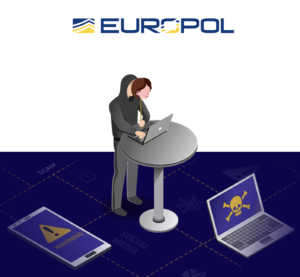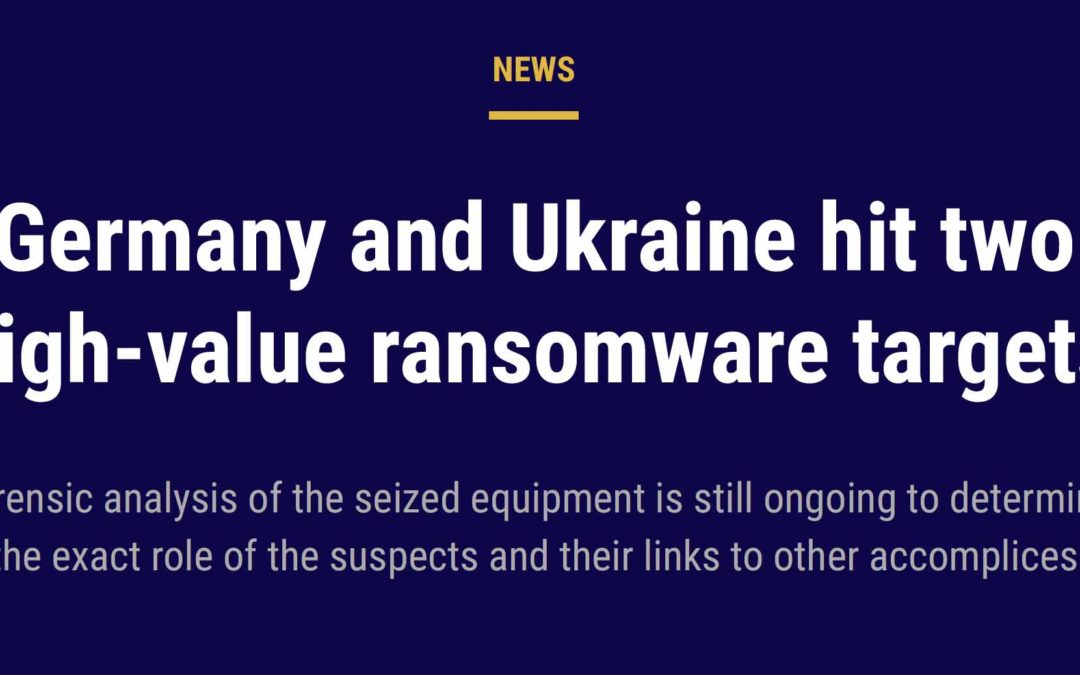Police in Ukraine and Germany recently targeted an international gang suspected of large-scale ransomware attacks, according to a report from Europol. (Europol is the police intelligence agency of the European Union—not to be confused with Interpol, an enforcement organization.)

American and Dutch police also helped track the ransomware scammers. Amazingly, at least one of the Ukrainian gang members was in Kharkiv, which is still being shelled. Clearly, he was dedicated to bad deeds. Victims were businesses all over the world, including a hospital in Germany. In the U.S., victims lost more than $43 million from 2019 to 2021. (Those were the latest figures available.)
Ransomware criminals use fake emails, text messages, phone calls and other schemes to hack computers and lock up data. Then they demand payments for its release. Ransomware victims in South Dakota and the Black Hills have included businesses, small towns and school districts.

Ironically, Europol itself had to warn people not to fall for fake Europol emails. So did the FBI and the IRS (which will never send you an email or text demanding money or information). Fake message, or “phishing,” can mimic any organization. The messages look real, and falling for them opens the door to ransomware and other scams. Experts agree that human behavior is the weakest link in cyber security, so a strong safety culture is the best (and cheapest!) defense.
All Net Connect can help your business build a safety culture. Families can be victims, too. Even kids. The FBI has a Safe Online Surfing website with tips for showing kids how to stay safe.

